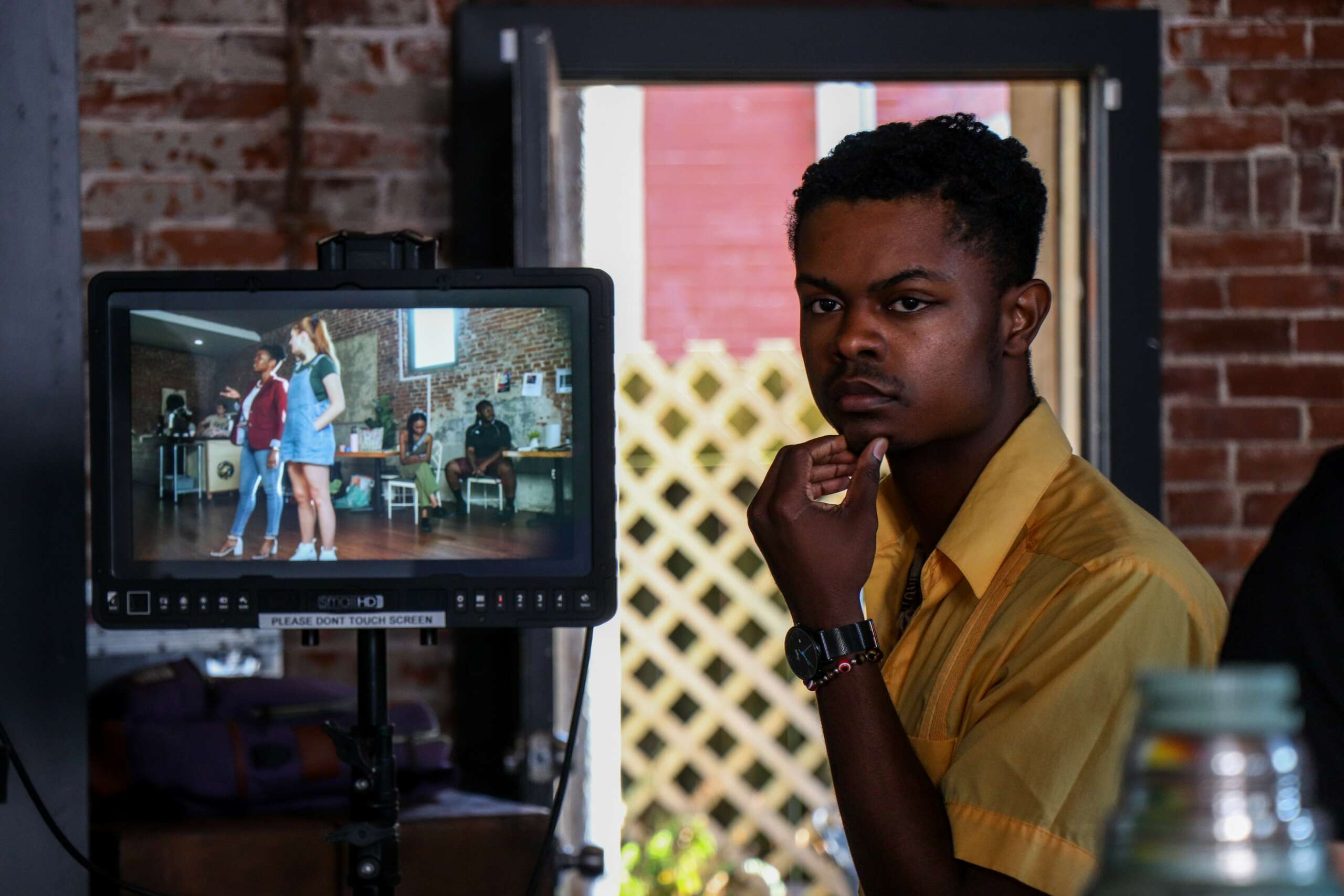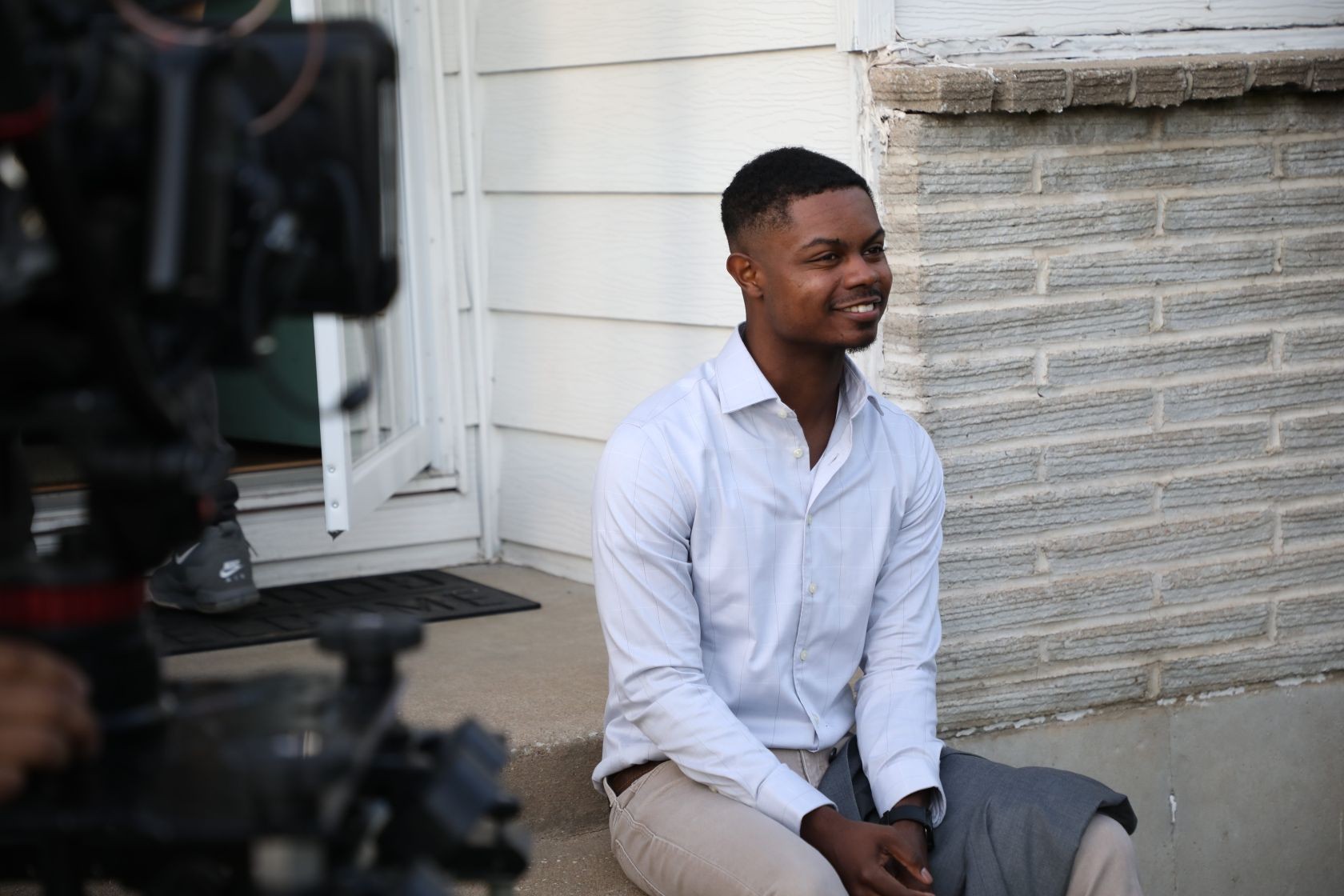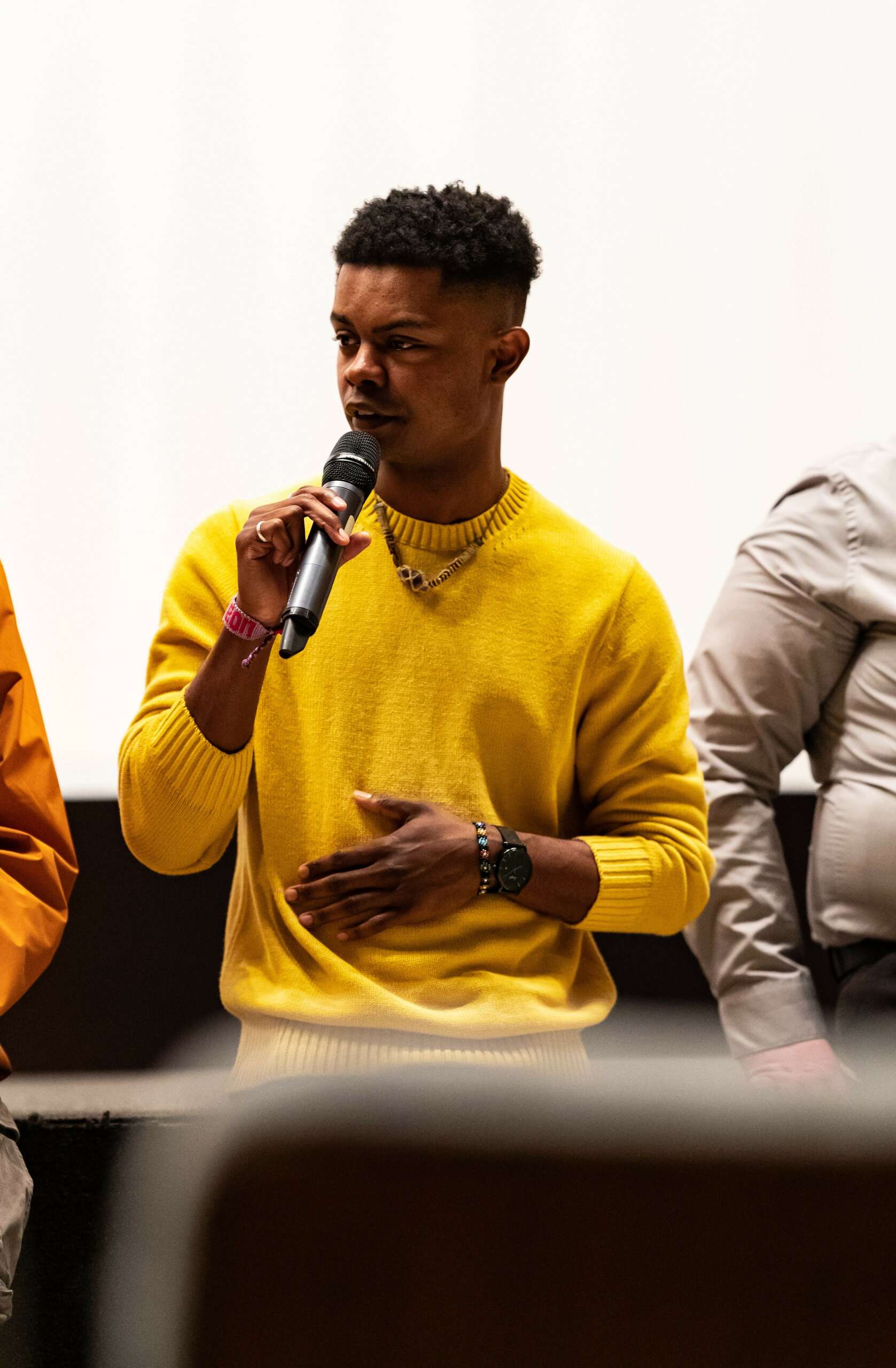We caught up with the brilliant and insightful Jean-Jacques Corbier Corbier a few weeks ago and have shared our conversation below.
Jean-Jacques Corbier, thanks for taking the time to share your stories with us today I’m sure there have been days where the challenges of being an artist or creative force you to think about what it would be like to just have a regular job. When’s the last time you felt that way? Did you have any insights from the experience?
I feel like I’m really happy and really fulfilled as an artist. Working to express the creative interests and inspirations I have into art is an exhilarating process. Connecting with and seeing my community of other dope artists and creatives grow and evolve healthy is exciting and sustaining. However, with that all being said, I can’t deny the moments where I’m not happy, where I’m super stressed and even depressed. Being an artist professionally is not an easy endeavor. Starting out, and even throughout your career, there’s an abundance of financial instability. The “starving artist” cliche is a cliche for a reason. Living in world where prices for simple living are rising faster than compensation, it does lead to a lot of stress. Especially if you want to avoid “selling out”, which may look different for every artist, you’re gonna need a lot of determination on your journey. Artistic integrity doesn’t always equal economic stability. And on top that there’s dealing with rejection. People saying no to giving you an opportunity or just no to your work. We are all constantly working on our craft and there’s a natural progression to our development to our skills in that craft. A lot of rejection occurs when at the early stages of our development. Sometimes we ourselves reject our own work. We can be our own harshest critic.
During the dark times I’ve definitely considered getting a regular “9 to 5” and push art to the side. The path to whatever societal, economic comfort is a lot more clear to me in that path. However, my mental health is always in a better space more consistently when I’m creating art. It’s a sanctuary for me. Connecting and collaborating with other artists is a cathartic experience for me. Each day being different from the previous gets me up in the morning. Sadness is not a permanent state. While my happiness is not a state that I can count on being in every day all day either, feeling like I’m living my purpose and being fulfilled is something I can count on consistently being an artist. The moments where everybody on set is working together to achieve a creative vision and having a lot of fun doing so, puts a smile on my face. The times somebody has come up to me and said something I worked on meant something to them, gives me the energy to keep pushing forward. Overall, I am happy to be an artist.


Jean-Jacques Corbier, before we move on to more of these sorts of questions, can you take some time to bring our readers up to speed on you and what you do?
I grew up loving movies and tv shows. Being a very introverted, shy and sheltered kid, that medium was my escape. I could live vicariously through all the characters I was seeing on screen. Once I got to college I went in undecided because I wasn’t sure if I’d pursue a film degree or go with something more traditionally viable like business. Within the first few minutes of my first film class freshman year, I knew I wanted to be in film for the rest of my life. After graduation, I got an internship at PBS station in Kansas City for the summer. Once there, I connected with a couple local filmmakers and got my start in the industry. I started as production assistant of various projects for a couple years. Currently, I work as a script supervisor or 1st and 2nd assistant director on variety of feature films and commercials.
In my own time I am developing my projects as a director, screenwriter and actor. I’ve directed several short films and music videos in the past couple of years. I write scripts not only for myself but also for others. Screenwriting, or writing in general, can be a tedious process for a lot of people, but I happened to enjoy it a lot. As an actor, I’ve performed for a couple of commercials, but I mainly find myself in more narrative projects. In the next year or so, I’m excited to direct some more documentary based projects.
Community is a big theme in my art and personal life. Becoming part of a vibrant and healthily evolving community since I started my filmmaking journey as helped improve my mental health, my level of empathy and my sense of belonging and purpose. Film, to me, is the most collaborative artistic medium and I try to push that ideal as much as I can. Directing to me is not about being the ultimate dictator but instead, the ultimate collaborator. Everybody on a set has something beautiful to contribute to the creative goal. While a director needs to have a clear and well-communicated vision, the set needs to be a safe space for people to exercise their full creative expression. The best art is created from uninhibited expression. I’m where I’m at because someone else gave me the space to explore my own expression. As a kid, this medium was an escape from reality to a playground, now as an adult, my reality is the playground.


For you, what’s the most rewarding aspect of being a creative?
The most rewarding aspect of being an artist is seeing someone inspired enough by your work to create their own art. I’ve been inspired by so many artists doing their thing, so doing a small part to pass on that tradition to the next person is so rewarding.
What can society do to ensure an environment that’s helpful to artists and creatives?
To me, society seems to reward an “assembly line” approach to art and artists. It seems like society values quantity over quality. How much “content” can you churn out? How frequently can you make something? How easily can you reproduce what you create? Art is an expression, and it’s hard to express on a capitalistic timetable. Some art takes a while to create. Imagine Michelangelo having to rush the Sistine chapel and then reproduce something similar soon after to stay relevant? I think a society that allows each individual artist to work at their own pace gets better art more consistently.
Also, another big way society could help the artistic ecosystem is funding. For both young and old artist, money is a resource that is often elusive. More funding put into art programs for schools can allow younger people to gain access to the things that can develop their skills and passion for art. For adults, city funded events and grants can allow artists to bring more of their dope art into fruition. We often credit a lot of European cities with being havens for a lot of important and influential art in history. America has and can continue to be havens of relevant, impactful art and artists as long we put more financial emphasis on it. I love sports, but I personally believe more American cities need more funded venues, events and grants instead of bigger stadiums.
Contact Info:
- Instagram: https://www.instagram.com/jeanjacquescorbier7
- Facebook: https://www.facebook.com/ace.corbier?mibextid=ZbWKwl
Image Credits
Profile image photographer : Vaughn Harrison


